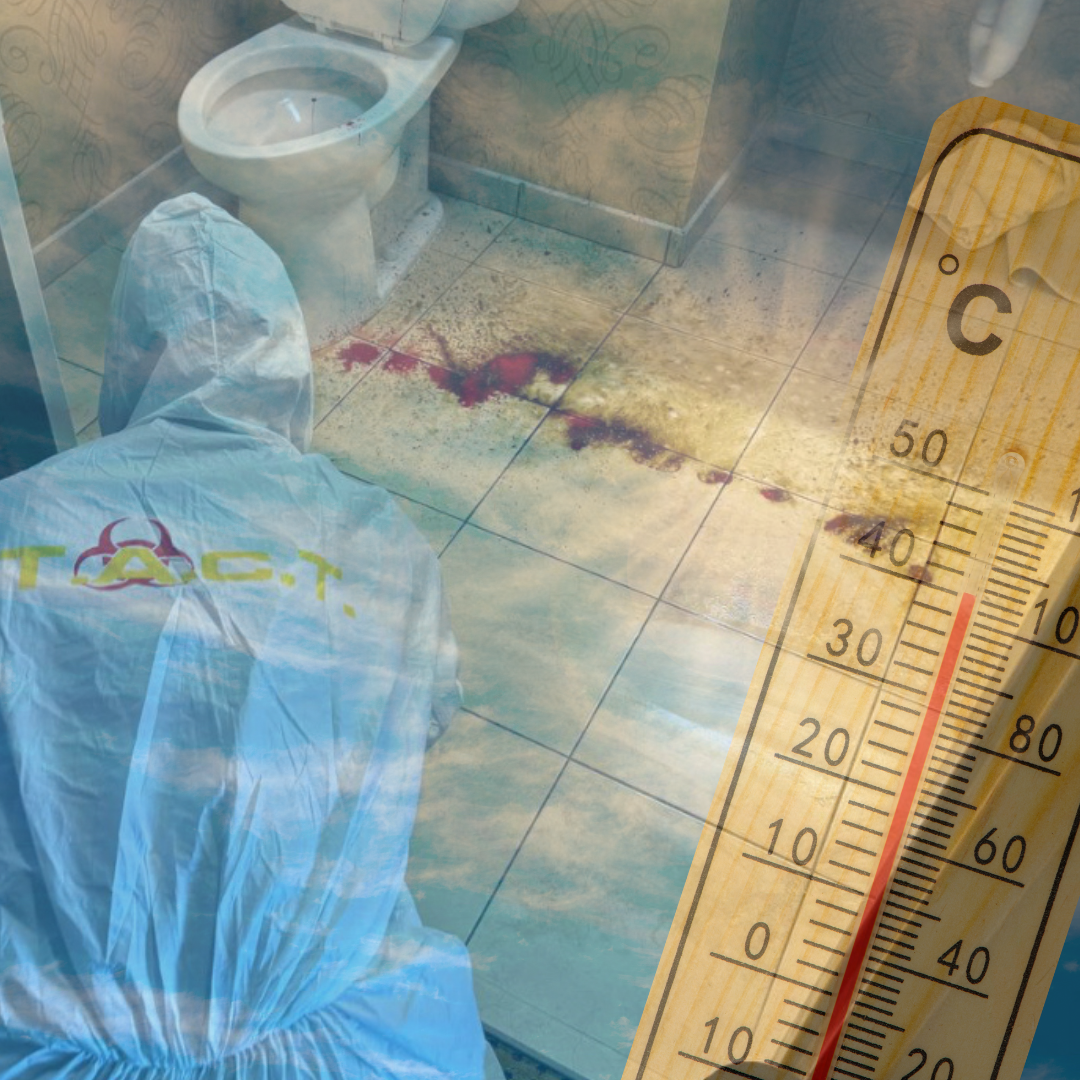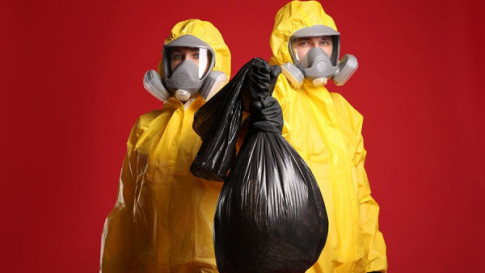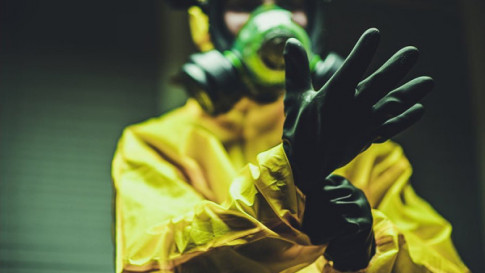Timing is Everything: The Critical Role of Swift Action in Decomposition Cleanup

June 2024
Decomposition and Heat: What You Need to Know
Heat accelerates the decomposition process, which has significant implications for remediation process. Understanding the science behind decomposition in hot weather, the specific techniques used to handle such situations, and the importance of timely intervention can help ensure safe and effective cleanup.
The Science Behind Decomposition in Hot Weather
Decomposition is a natural process in which organic materials, such as blood, bodily fluids and other organic materials, break down into simpler forms of matter. The rate of decomposition is influenced by several factors, including temperature, humidity, and the presence of decomposers like bacteria and insects. Here's a closer look at how heat impacts decomposition:
1. Increased Bacterial Activity: Heat accelerates the growth and activity of bacteria, which are primary agents of decomposition. Higher temperatures provide an optimal environment for bacteria to thrive, leading to faster breakdown of organic material.
2. Insect Infestation: Warm weather attracts insects, particularly flies, which lay eggs that hatch into larvae (maggots). These larvae consume decomposing tissue, speeding up the process and often, resulting in a larger infestation.
3. Chemical Reactions: Heat accelerates chemical reactions within the body, including the breakdown of cells and tissues. Enzymatic processes become more active, leading to quicker decomposition.
4. Moisture and Humidity: High temperatures often coincide with increased humidity, creating an environment conducive to rapid decomposition. Moist conditions facilitate microbial growth and enzymatic activity.
Specific Techniques Used to Handle Decomposition in Summer
Dealing with decomposition in hot weather requires specialized techniques and protocols to ensure safety and thorough remediation. Here are some key strategies:
1. Protective Equipment: T.A.C.T. PWC technicians must wear appropriate personal protective equipment (PPE), including gloves, masks, and full-body suits, to prevent exposure to harmful bacteria, pathogens, and odors.
2. Odor Control: Decomposition produces strong, unpleasant odors. Using industrial-strength, proprietary chemicals, deodorizers and equipment can help manage and eliminate these odors during the cleanup process.
3. Rapid Response: Quick intervention is crucial. The longer a body remains in high temperatures, the more advanced the decomposition, increasing health risks and complicating the cleanup process. Rapid response teams, like T.A.C.T. are essential to address the situation promptly and effectively.
4. Containment: Proper containment of the affected area is necessary to prevent the spread of biohazards. This includes sealing off the area and using specialized equipment to contain and remove contaminated materials safely and per local OSHA guidelines.
5. Specialized Cleaning Agents: Using biohazard-specific cleaning agents and disinfectants ensures that all harmful pathogens are eliminated. T.A.C.T. uses proprietary chemicals that are designed to break down biological matter and neutralize odors effectively.
6. Disposal Procedures: Proper disposal of biohazardous waste is essential. Materials must be sealed in approved containers and disposed of in accordance with local and federal regulations to ensure environmental safety.
Importance of Timely Intervention
Timely intervention in cases of decomposition is critical for several reasons:
1. Health Risks: Decomposing bodies release harmful bacteria, viruses, and other pathogens that can pose serious health risks to anyone exposed. Prompt cleanup minimizes the risk of infection and disease transmission.
2. Structural Damage: The fluids released during decomposition can seep into floors, walls, and other structural elements, causing significant damage. Early intervention helps prevent extensive property damage and costly repairs.
3. Emotional Impact: The presence of a decomposing body can be traumatic for loved ones and community members. Quick and respectful remediation helps alleviate emotional distress and provides closure.
4. Environmental Concerns: Decomposing bodies can attract pests and contribute to environmental contamination. Swift action ensures that the area is restored to a safe and hygienic condition, protecting the surrounding environment.
By understanding the science of decomposition in hot weather, implementing effective remediation techniques, and emphasizing the importance of timely intervention, biohazard remediation professionals can manage the challenges of decomposition with expertise and compassion.
Latest news

Learn about the complete process of trauma scene cleanup in Prince William County, VA, from initial arrival to full restoration, ensuring a safe environment.
Read More
Supporting Communities with Specialized Cleaning & Biohazard Services. Virus Decontamination, Hoarding Cleanup, Deep Cleaning Services, Blood Cleanup, and Human Waste Cleanup.
Read More
Suicide Cleanup in Washington, D.C., Northern Virginia & Frederick, MD. Certified Biohazard Cleanup, Blood Cleanup, Crime Scene Cleanup, and Dead Body Clean Up Professionals.
Read More